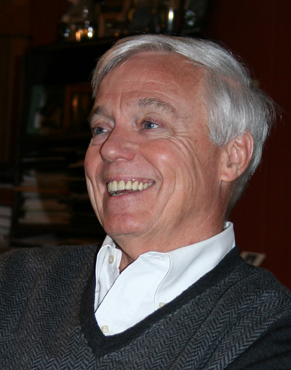Virginia House Speaker Bill Howell and the Virginia Civil War sesquicentennial commission remember the war that split the state in two. Literally. Interview by Chris Howland
Why did the Virginia legislature feel it was necessary to spearhead the sesquicentennial effort?
We had almost concluded the 400th anniversary of the founding of Jamestown, and we thought this would be kind of a good follow-up. Charlie Bryant, the president of the Virginia Historical Society at the time, reminded me that 2011 would be the 150th anniversary of the beginning of the Civil War, that we had a good opportunity to commemorate it. We agreed this gave us the chance to increase people’s knowledge of the war, and—contrasting it to the centennial celebration 50 years ago—we could do it in a way that would do a better job of educating people, of involving people, and not just having replica wars, battles, and so on.
What were the commission’s major goals? Education? Tourism? A chance to secure Virginia’s Civil War legacy?
Tourism was clearly an important part of it. Again, comparing it to the 400th anniversary of Jamestown, the state put millions and millions of dollars into that—and it was a very important, very seminal event in the history of the world, but it was one day, in one location, and it really didn’t have the tourism opportunities that a commemoration of the war has, because [the war] was fought all across Virginia…the bookends of the war were the First Battle of Manassas and Appomattox. This touched every corner of the commonwealth, and people are still very interested in that.
How has the African-American community in Virginia responded to your efforts thus far?
It is still developing, but I think the reaction has been very positive. For example, the event we just had in Stafford County had a tremendous outpouring of African-American support. We had actors from the movie Glory who came down for it and spoke, and there were one or two people who were relatives of the slaves who went north across the [Rappahannock] river. Our symposium [this year] is about slavery, chaired by Dr. James Horton. It’s at Norfolk State University, a predominately black school, called “Race, Slavery and the Civil War: The Tough Stuff of American History and Memory.”
Has it been difficult to offer a balanced North-South perspective, considering Virginia’s role in the Confederacy?
It hasn’t been difficult. We have a very interesting commission that’s made up of 15 senators and delegates total, and three citizens—non-legislative appointees. We have an enormous advisory council that has every interest group: sons of Union veterans, sons and daughters of United States Colored Troops, everyone who has a stake in this….
One neat thing we’ve done is the Legacy Project. The sesquicentennial has given an opportunity to find artifacts, papers and such that are all over the state in people’s attics and basements, and get them digitized and preserved. This has really taken off.
Has the public response been positive so far?
I think the response from the people that have participated and know about it has been overwhelmingly positive. I don’t think we’ve had any brickbacks or anything like that, which is surprising because this is a very prickly group on both sides, and, candidly, I’ve been somewhat surprised that we’ve escaped more, and I think it’s because we’re trying to do things right. [Commission Director] Cheryl [Jackson] and I were talking about one person who is involved in a lot of the things we do, a Reconstructed Rebel, and he’ll be unhappy for example with some of the things we do, but he participates and helps and gives us his ideas, and it’s all working out very well.




